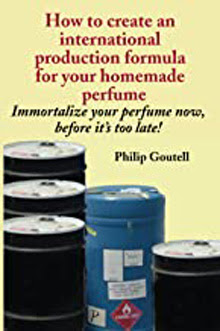Without a formula you can't repeat what you've done. Without a formula you can't match the original scent you created.
Writing out a proper formula when creating a fragrance distinguishes the professional from the hobbiest. The hobbiest mixes a little this with a little that and calls it a perfume. Nice. But if it's good, that "good" perfume is limited in quantity to the original batch that was made (usually quite small!) because the hobbiest doesn't keep a record of what he or she has done. So more of the same cannot be produced.
The professional keeps a record of every trial, every test, ever small adjustment. Maybe one out of twenty or even one out of one hundred of these records will survive and become a "go to market" perfume. For the hobbiest this record keeping seems too tedious. For the professional, record keeping is just a natural part of the work flow.
Why should record keeping -- writing out an accurate formula of every variation of every fragrance you work on -- be such a burden? One issue that may never have occurred to you is equipment -- having enough mixing pots and whatever to dedicate a clean container for each new attempt to develop or modify a perfume. Each time you start an even slightly different variant of the perfume you're working on you need to start with a new, clean, mixing container.
When you start work on a new fragrance you may have to equip yourself with dozens of small mixing pots.
A second impediment for the hobbiest is an inadequate supply of the aroma materials being used. Say you are mixing a perfume and you've gotten to the point where your formula calls for twenty drops (from a dropper bottle) of a rose scent mixed with two drops of an herbal scent. If you want to try another version with three drops of the herbal, or four, or five, each time you make up a new trial you're using twenty drops of the rose scent.
To test the effect of a small change in the herbal, you could be using quite a lot of the rose and, frustrating to the hobbiest, you already know (or think you know!) how much of the rose you need.
So the hobbiest just adds a bit more herbal to the rose in the original measuring cup. It may make the fragrance better, it may make it worse, but now there is no way of comparing the two concepts because all has been entrusted to a single pot.
The starting point for the hobbiest who wants to turn his or her creations into marketable products is the discipline of keeping precise notes, precise formulas of every step in the development, ever change of ingredients, however small. In a sense, the formula is the final goal for the professional perfume creator.
****
A few more notes on this can be found here.The illustrative video of "the right way" is found here ... and the "wrong" way here.

